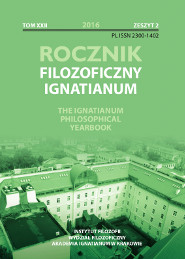
We kindly inform you that, as long as the subject affiliation of our 300.000+ articles is in progress, you might get unsufficient or no results on your third level or second level search. In this case, please broaden your search criteria.


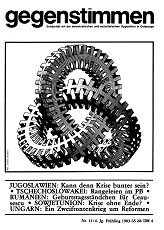
Even Marx himself has not imagined the course of history as dialectical and contradictory as it developed in the last hundred years since his death.
More...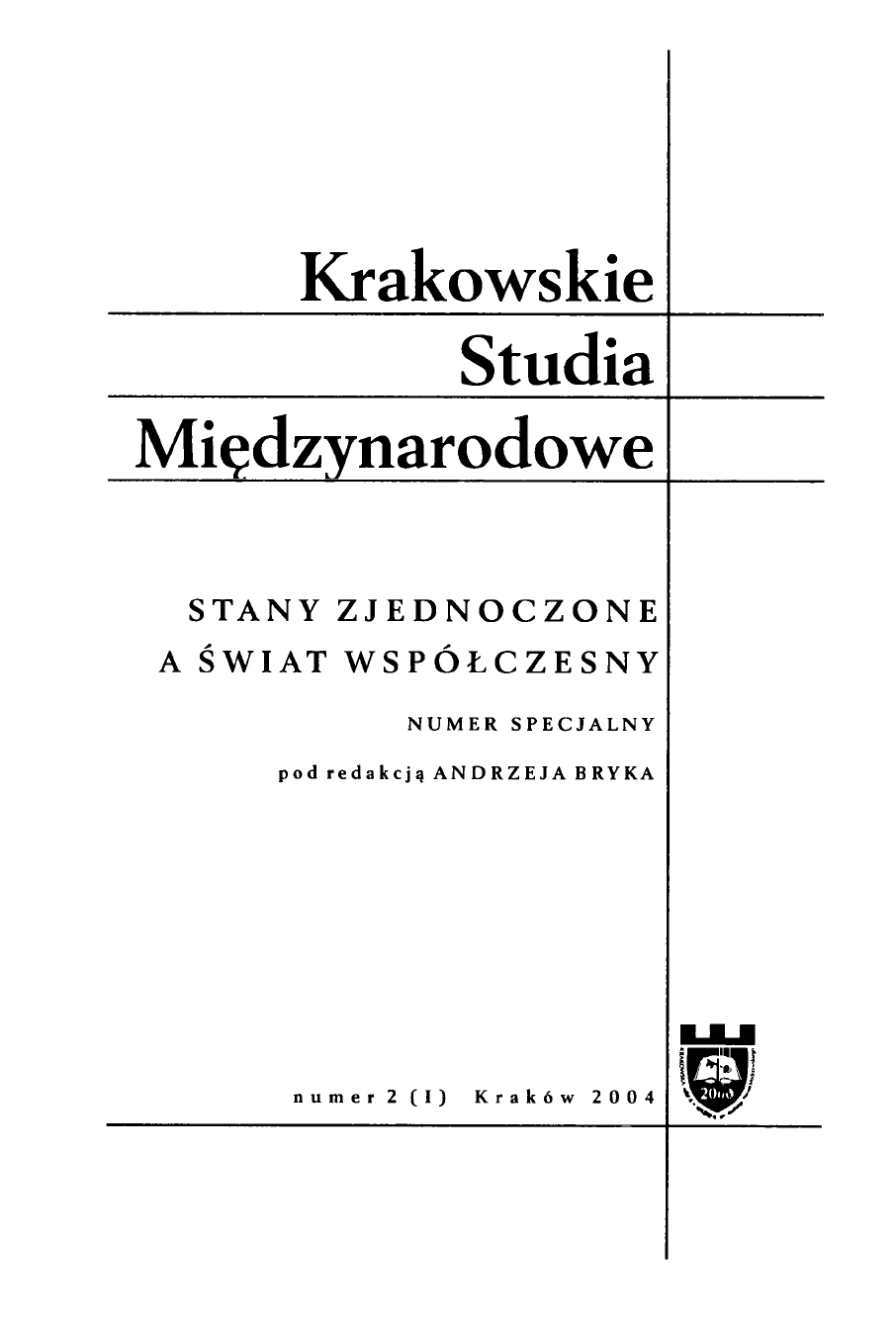
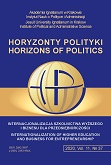
RESEARCH OBJECTIVE: The aim of the research is to confront two zetetic models in the field of philosophy of politics. I am most interested in the views of Eric Voegelin and Leo Strauss and their references to ancient Greek philosophy. These inquiries will not only indicate the possibility of a multi faceted understanding of the philosophy of politics in an anti dogmatic zetetic spirit, but also the differences in zetetic models based on reflection in the field of philosophy of politics. THE RESEARCH PROBLEM AND METHODS: The article contains meta-philosophical considerations related to the field of philosophy of politics. The primary methods used will be philosophical methods, applied at the meta level to inquiries in the field of political philosophy. THE PROCESS OF ARGUMENTATION: First, I will try to specify the phrase “zetetic model” based on passages from Plato, Aristotle and Sextus Empiricus. In the further part of my argument, I will present Voegelin’s zetetic model based on his book Order and History and Strauss’ model based on Restatement on Xenophon’s Hiero and compare both views. RESEARCH RESULTS: Despite the fact that both these thinkers share common ideas (conservatism, normativism, radicalism, respect for Greek philosophy), there are fundamental differences in their understanding of philosophy as a zetetic process. This comparison also brings other metaphilosophical problems to light, resulting from the challenges of the philosophy of politics. CONCLUSIONS, INNOVATIONS, AND RECOMMENDATIONS: The research shows that there is a need for a more in depth and comprehensive examination of zetetic methods in recent philosophy of politics.
More...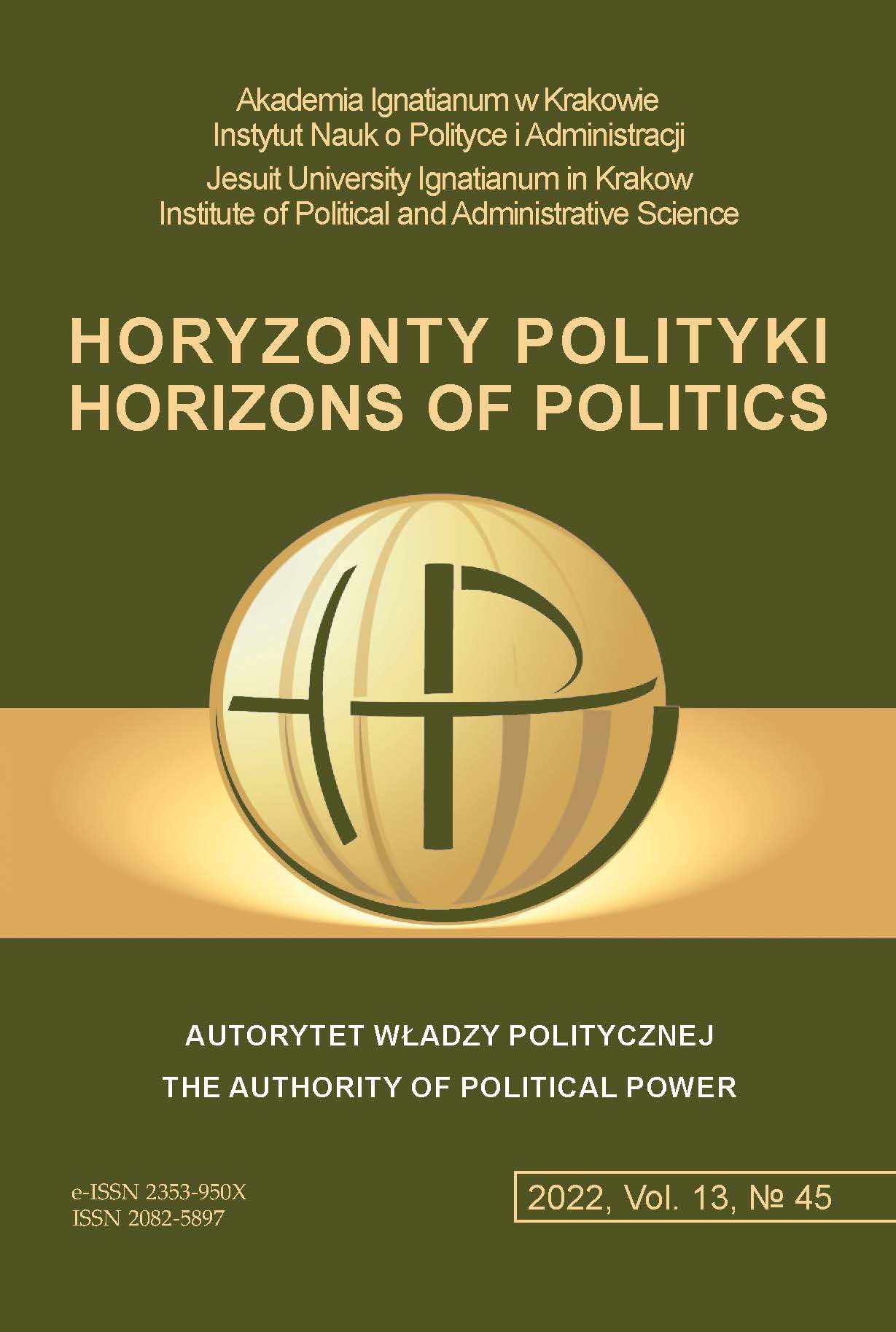
RESEARCH OBJECTIVE: The aim of the research is to rethink the relationship between political philosophy and political practice. The views of Michael Oakeshott, Costica Bradatan and Socrates will be used as premises in these analyses. A new criterion for distinguishing these two areas can be identified, partially referring to the tradition that emphasizes understatement and unrestrainedness.THE RESEARCH PROBLEM AND METHODS: The article contains metaphilosophical considerations related to the field of philosophy of politics. The primary methods used will be philosophical methods, applied at the meta level to inquiries in the field of political philosophy.THE PROCESS OF ARGUMENTATION: First, I will try to define the phrases “philosophy of politics” and “political philosophy” in the Polish language.In the following part of the article, I will present the views of Oakeshott and Bradatan regarding philosophy and politics. Finally, I will contrast these findings with the image of Socrates and show the fields of synergy.RESEARCH RESULTS: These analyses in the field of metaphilosophy, in relation primarily to political philosophy, will allow us to define the very status of philosophical reflection and the limitations related to the attempts to provide an exhaustive definition. Based on a comparison of these concepts, other metaphilosophical problems arising from the challenges of political philosophy also emerge.CONCLUSIONS, INNOVATIONS, AND RECOMMENDATIONS: The research shows a need for a deeper analysis of metaphilosophical issues concerning political philosophy. Such research should deepen research in both philosophy and political science.
More...
RESEARCH OBJECTIVE: The research objective of this article is to present the different ways in which the sixteenth-century representatives of the Polish intellectual and political elites, who supported republicanism, defined and understood freedom.THE RESEARCH PROBLEM AND METHODS: The research problem centres around the description of a model of liberty within the framework defined by the legal order. The key issue was to capture the relationship between, on the one hand, the scope of civil liberty and, on the other hand, the way in which state legal norms were defined and created.THE PROCESS OF ARGUMENTATION: After highlighting the importance of freedom as a key category and concept for political thought, the views on freedom and a republic of three sixteenth-century Polish political writers – Stanisław Orzechowski, Wawrzyniec Goślicki, and Piotr Skarga – are discussed. In their political considerations, they paid attention to different aspects, as each of them represented one of the three key “political subjects” ingrained in: democracy (local parliaments called sejmik), aristocracy (senate), and monarchy (king).RESEARCH RESULTS: The analysis conducted in the article allows the following conclusion to be formulated: a characteristic feature of Polish political thought in the sixteenth century, which stemmed from the concept of natural law ingrained in Catholicism, was the definition of freedom as human actions fully compatible with both natural and positive law and the conviction that the most appropriate system to guarantee it was a republic. CONCLUSIONS, INNOVATIONS, AND RECOMMENDATIONS: The main recommendation stemming from the analysis is to present the views of Polish political writers on the same topics from three perspectives: those typical of Protestants, Arians, and supporters of absolute monarchy.
More...
The author of the article investigates if there is any philosophical narrative that fits the Anthropocene or Capitalocene epoch. He tries to show that we can find an outline of such a narrative in several contemporary philosophical theories, from the actor-network theory to post-structuralist feminism. They all have two things in common: anti-dualism (especially the rejection of nature vs society dualism) and the rejection of a hyper- -individualist vision of humans. According to him post-growth concepts, which are based on similar assumptions and additionally have political potential, can be a mediator to help popularize these narratives.
More...
The aim of this paper is to analyze the meanings of the notion of ecosocialism in the contemporary political and philosophical discourse.In the first step, I distinguish ecosocialism as a movement and ecosocialism as a theory. Global ecosocialist movement is united by its political demands. However, it includes currents with diverse theoretical assumptions. I focus on the opposition of currents referring to the Marxist tradition and currents which could be called, following Joan Martinez- -Alier, “ecological neo-narodnism,” that is referring to traditional ethics and values of existing communities, as in the case of numerous indigenous or eco-feminist movements. Those currents have different views on numerous issues, including the question of development.In the second step, concerning ecosocialism as a theory, two positions based on Karl Marx’s theory have been analyzed. According to the first one, represented by Joel Kovel and Michael Löwy, Marx’s thought should be supplemented with the ecological dimension. According to the second position, adopted by John Bellamy Foster, ecosocialism is the very Marx’s idea, presented in Capital. Bringing into the fore the concepts of metabolism and metabolic rift, Foster discovers the ecological, in the contemporary sense, dimension of the thought of the mature Marx.I show that one should distinguish ecosocialism in the political sense from ecosocialism in the philosophical sense. On the philosophical level, the dissimilarity of positions has its genesis in the interpretation of Marx’s ontology: Kovel and Löwy are the followers of the Marxism-Humanism tradition, Foster breaks with this tradition and reads Marx’s ontology in the perspective of Epicurean materialism.
More...
The subject of the text is the vision of a post-capitalist society by British economist and sustainable development researcher Tim Jackson. It is a unique, feasible utopia based on the latest empirical economical findings and reports by natural scientists on the seriousness of contemporary environmental threats. The article systematically reconstructs its fundamental assumptions.Jackson’s arguments are directed against „growthism”, that is, the unreflective acceptance of the logic of never-ending economic growth at any cost. The utopia built by this economist is based on the pillars of balance, prosperity, psychological flow and work. The article uses ideas from Jackson’s works (Prosperity without Growth. Economics for a Finite Planet published in 2009 and Post Growth. Life after Capitalism from 2021), as well as selected theses and findings of the ecological economics of degrowth.
More...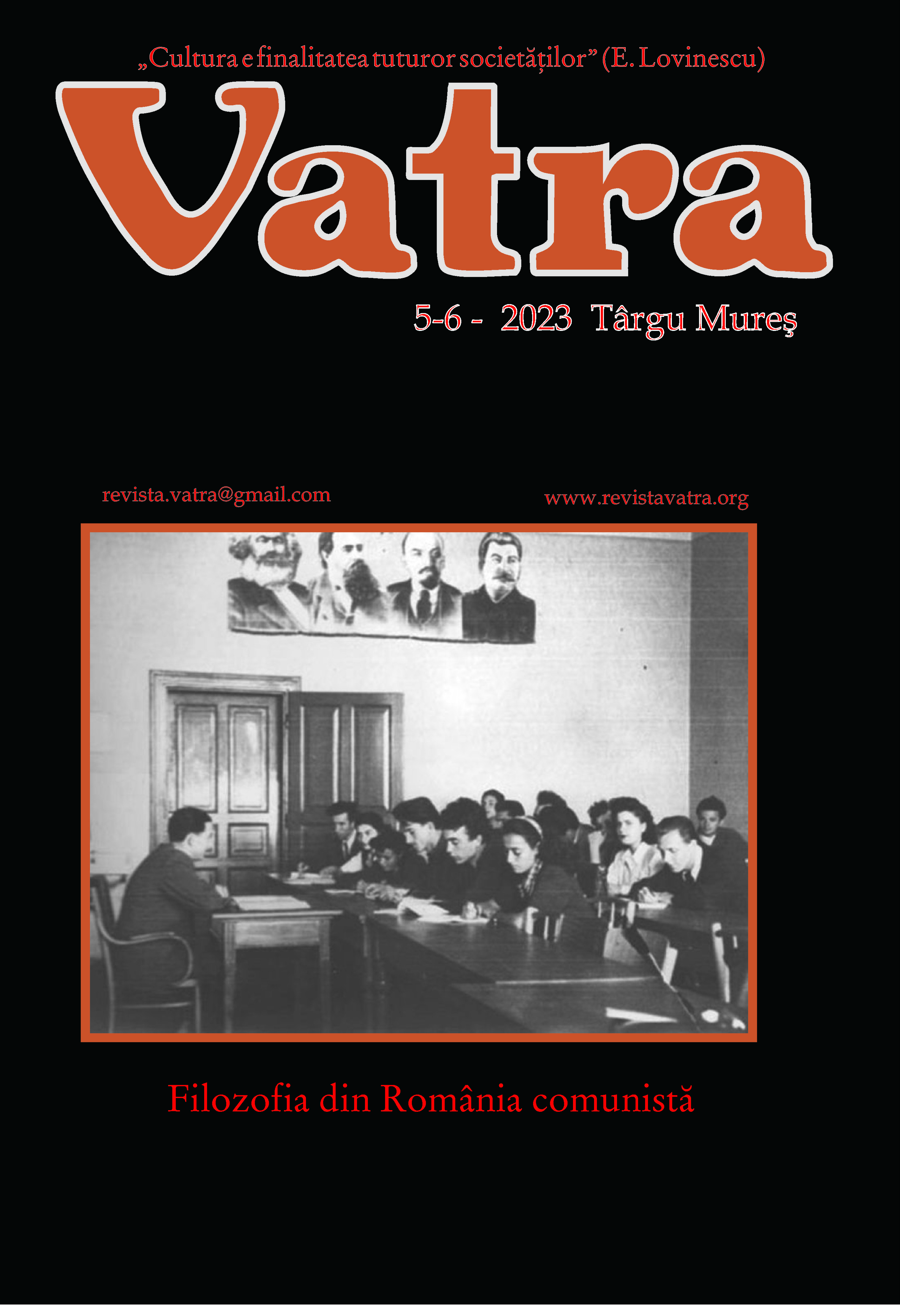
For philosophy, to fundament is not to bring into existence, but to ask questions. Its domain is not so much that of an existence overlapping the regional ontologies of the sciences, but that of the possibility of conception. The problem of meaning thus derives from the question about the question. It makes sense to wonder about existence, about nothingness, about the value of spirit etc. Aristotle effectively conceived of philosophy as a "science of sciences".
More...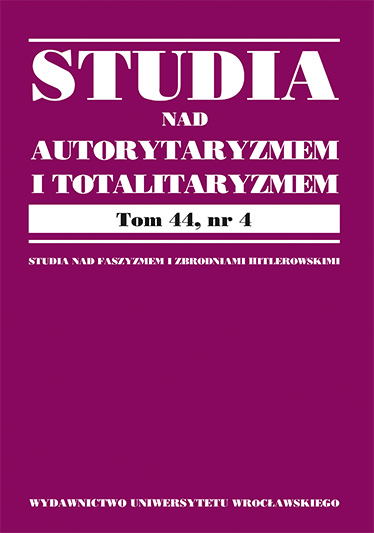
The Third Position is one of the marginal currents in contemporary political thought. This current was represented by the International Third Position established in 1989. The values, concepts and arguments for the annihilation of parliamentary democracies and forms of contemporary international relations put forward by this organization raise the question: is the political thought of the Third Position (represented by the International Third Position) a fascist one? In the present article the author has formulated a hypothesis, according to which the political thought of the International Third Position is an ideology that meets the defi nition criteria of fascism. To verify it, the author used the theoretical framework presented in a lecture by the Italian writer and intellectual Umberto Eco (1932–2016) delivered in 1995 at Columbia University. The main method of verifying the hypothesis was a critical analysis of the elements of political thought of the International Third Position and comparing it with the features (symptoms) of fascism formulated by Eco. The source material for the analysis include documents of the International Third Position, as well as documents of political parties and organizations that make up the ITP from Italy and Poland. An important source were the ideological and journalistic texts written by the leaders of this movement from the UK, Poland and Italy. In the article, each of the fourteen features of fascism proposed by Umberto Eco was analyzed in the context of the thought of the Third Position. The research hypothesis has been positively verified. The political thought of the Third Position does indeed meet the defi nition criteria of fascism.
More...
The aim of the article is to outline the distinction between the nomocratic and the voluntarist version of democracy. Based of the findings of classical political philosophy, I strive to show that democracy can also turn into tyranny, the basic feature of which is the instability of the law. The main issue I am considering is the question of how to limit the will of the people without placing any other will above people’s will. In the past, this was achieved by depoliticizing the people. Today, however, this path seems closed due to, among other things, the constant pressure on the people to take a stand. The people are convinced by party leaders that they are a many-headed monarch and that their will is above the law. This creates the conditions for the emergence and functioning of a voluntarist democracy, which is a tyranny of the majority. Thus, the prospects for the development of a nomocratic democracy, in which the people are seen as guardians of law, are not bright.
More...
This article is a reflection on the function of myth in the political theory of Nazism. Principal Nazi ideologue Alfred Rosenberg is the author of famous book The Myth of the Twentieth Century (1930). What is the role of myth in his concept? Why wasn’t it titled The Ideology of Twentieth Century? In my opinion, myth has two main roles in Rosenberg’s theory. Firstly, it’s great proposition of meaning of history and its enemies counters the Marxist ideology of history as a grand process of emancipation concluding with the proletarian revolution. As Marx and Marxists speak about history from the point of view of class struggles, Rosenberg speaks from the point of racial struggles. The second aim stems from what Rosenberg perceived as a absence of an idea of nation-state in Germany. For Rosenberg, the Germans from many countries and states do not have the common consciousness inherent in (and imperative for) a national community. In such circumstances the Nazis must themselves create a myth of a common German race as an objective and scientific “fact.” In the political ideas of Rosenberg, the Nordic race is the substitute of a normal nation and the idea of a nation-state.
More...![„Az ego hatalma éppen az alter […] »igen«-jével éri el tetőpontját.” Byung-Chul Han: Mi a hatalom? Ford. Csordás Gábor](/api/image/getissuecoverimage?id=picture_2024_81084.jpg)
Byung-Chul Han: Mi a hatalom? Ford. Csordás Gábor. Budapest, Typotex, 2023, 163 p.
More...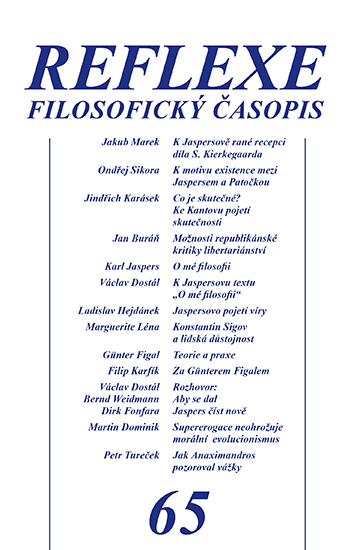
The article explores the possibilities of using civic republicanism in order to criticize Nozickian libertarianism on the ground of its own premises, especially the emphasis it puts on individual freedom. It evaluates the critique to which Nozick’s theory has been subjected to by Ian Shapiro, finding Shapiro’s objections lacking in understanding, yet valid in principle. The second line of attack is then led via the notion of freedom as non-domination (which inextricably intertwines it with democracy) and via the needs which must be satisfied in order for a state to function as a safeguard for liberty in the contemporary world of multinational corporations.
More...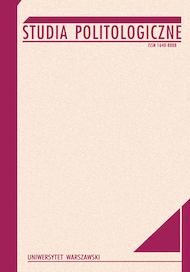
The aim of the article is to define and catalog the factors preventing political entropy in an international realm – natural tendency of increasing of disorder and progressing of disintegration in global scale. In the first part of the paper, the author extensively referred on how the second law of thermodynamics – the law of entropy are used by social scientists for explanation of phenomena of their interest, and on the basis of available scientific literature, the metaphor of political entropy was formulated. Subsequently, in the second part of the article, this metaphor was used as a framework for identification, highlighting and classification of those factors, which – in the author’s opinion – significantly contribute to the slowdown or stopping entropy in an international realm. In the commentaries and conclusions, those factors were interpreted from the institutional perspective, stressing the importance of institutionalization for regulation and stabilization of international relations, and for creation of international order – the anti-thesis of political entropy.
More...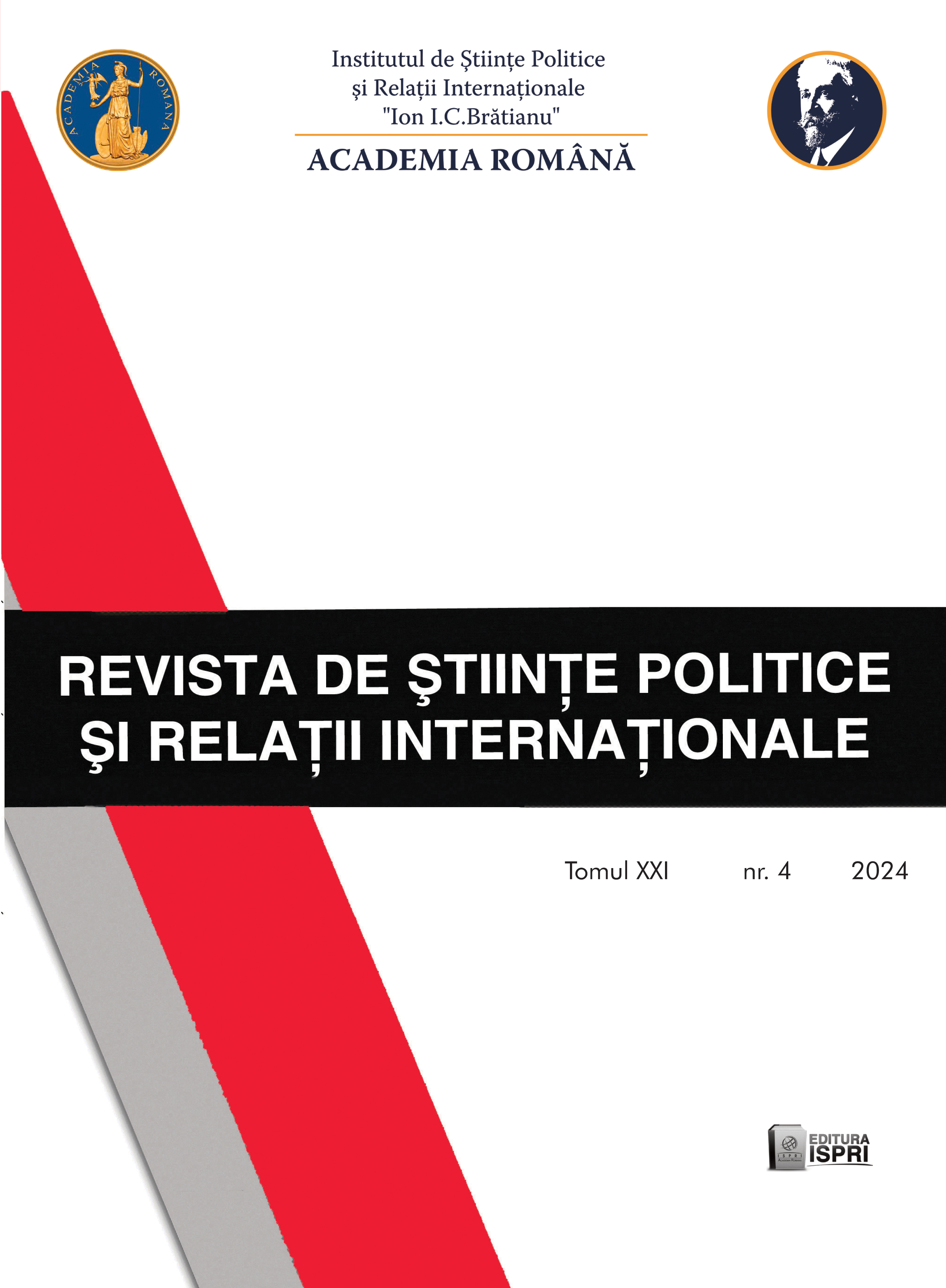
The paper aims to document the history of a broad and intense Western controversy, with still weak echoes in Romanian literature, that of the implications of the National Socialist convictions of the influential German thinker Martin Heidegger on his philosophical and political conception. It includes references to points of view and phases of „the Heidegger case“ expressed until the publication of Schwarze Hefte.
More...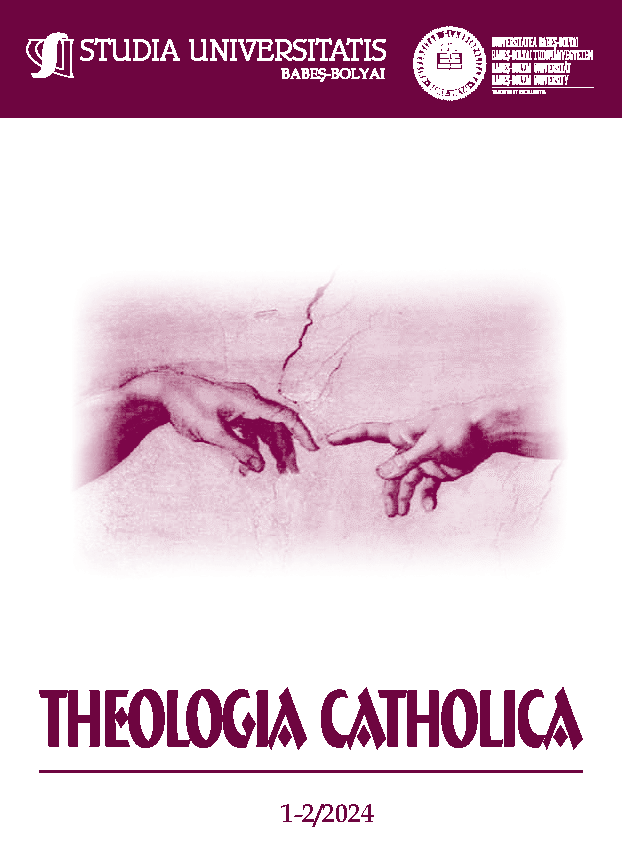
The identity of the individual is given in the tension between the particular and the universal, tension taken over by the political organizations of human communities that favoured either the local component (the city-state) or the universal component (the empire). Modernity, influenced by Christianity, affirmed the connection between the individual and the universal and, in opposition to the Church, proposed a new model of organization, liberal secular democracy, based on universal rights of the individual. After the second half of the twentieth century, in the name of individual freedom, democracies increasingly adopted axiological neutral liberalism, but this diluted individuals’ belonging to a community and led to persistent identity confusion. After the confrontations of the beginning of modernity, Christianity and science find themselves in a post-secular era in which they can complement each other to overcome the identity confusion of society by reconfiguring the balance between the individual and the universal and inserting values.
More...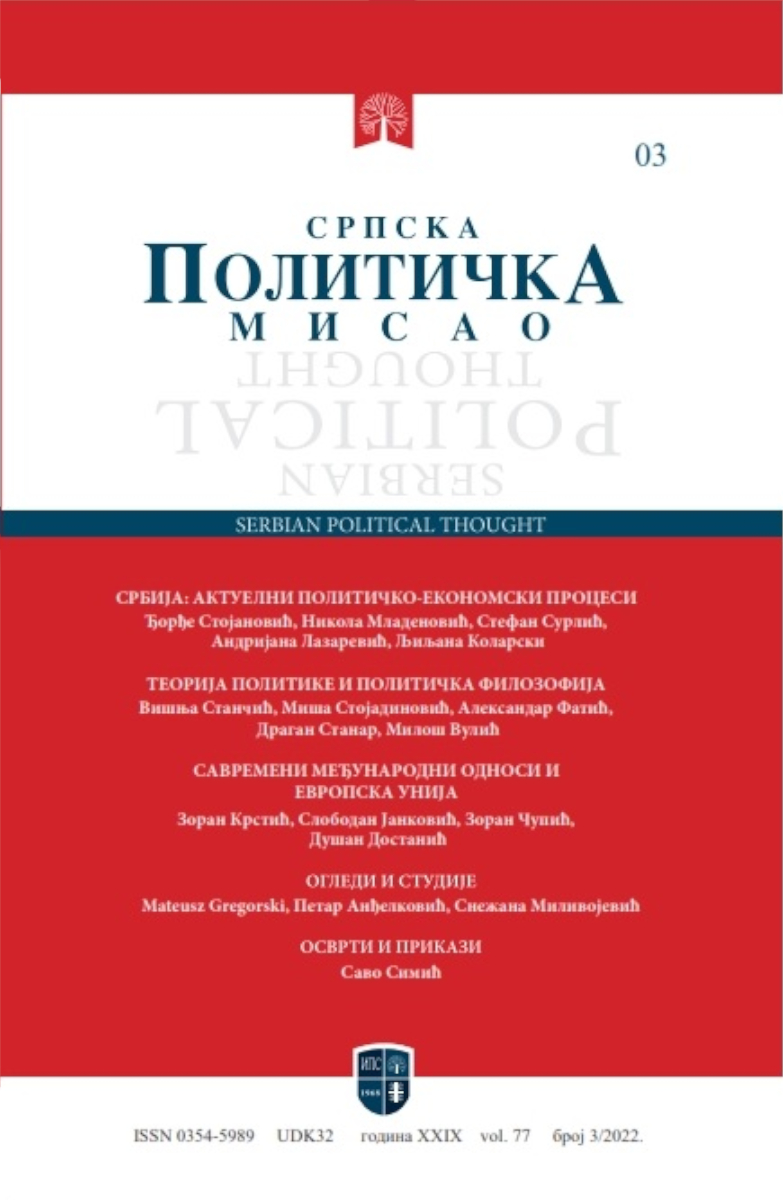
The subject of this paper is thorough analysis of value pluralism and moral and cultural relativism, as different meta-ethical theories. The focus of the analysis is Berlin’s understanding of value pluralism, distinction between value monism and pluralism, as well as the implications of this distinction. This topic is connected with other key issues, such as the concepts of freedom and human nature, therefore it is of great importance in the field of moral and political discussions. Drawing on the analysis of Berlin’s view on value pluralism, the authors examine the most relevant critiques of this view, which interpret Berlin’s understanding as radical pluralism, subjectivism, moral and cultural relativism and postmodernism. In that respect, the main purpose of this paper is to distinguish value pluralism from the above-mentioned standpoints. The authors will attempt to demonstrate that these critiques consist of wrongly derived implications of Berlin’s understanding. In the light of the mentioned considerations, the authors conclude that the recognition of the existence of the minimal core of universal human nature and morality is what distinguishes value pluralism from subjectivism and relativism.
More...